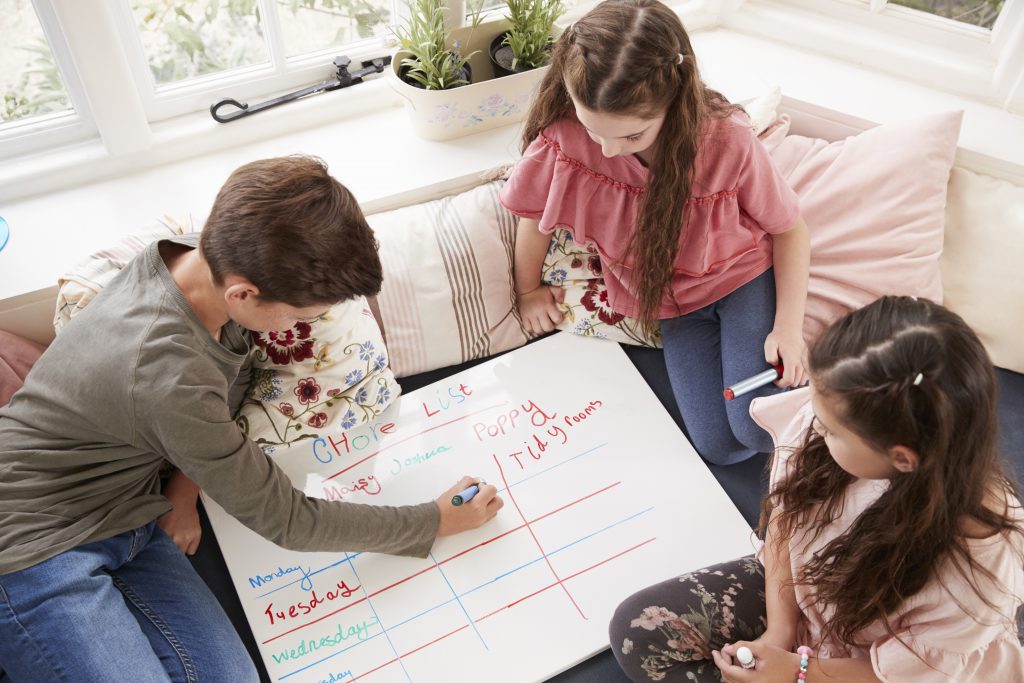The holidays can be magical — twinkling lights, gifts, special traditions, time with family. But for many neurodivergent children, the holiday season can also bring a lot of stress and sometimes feelings of sadness. Changes in routine, sensory overload, unfamiliar foods, and social expectations can make even joyful moments feel overwhelming. It is common for caregivers to feel conflicted; wanting their child to enjoy the holidays while also prioritizing their need for calm and low stress. The good news is that, with thoughtful preparation and a compassionate approach, families can support their children in navigating the season with greater ease so that everyone, including neurodivergent children, can enjoy themselves without feeling overwhelmed.
Keep Routines Wherever You Can
Routines help kids feel secure, and when those routines disappear, anxiety often increases. Even when the change is for something exciting like holiday traditions, celebrations, or special outings, it can still feel overwhelming. Try to maintain consistent sleep times, meals, and screen limits as much as possible, even when travel or gatherings make things unpredictable. If your child thrives on predictability, talk with them ahead of time about what the holiday schedule will look like so they know what to expect. You can also create a simple visual schedule showing the plan for each day. Seeing what’s coming next can help reduce the stress that comes from surprises.

Prepare for Sensory Overload
Holiday environments can feel like a sensory storm: flashing lights, loud music, big crowds, strong smells, and even scratchy sweaters. All of this stimulation can make it easier for any child to feel overwhelmed, especially if they are neurodivergent. If you know you’ll be in a busy or highly stimulating setting, it can help to talk with your child ahead of time about strategies they can use when things start to feel like too much. This might include finding a quiet corner, stepping outside for fresh air, or spending a few minutes with the family pet. Having a calm place to regroup can turn a potential meltdown into a moment of recovery. You can also bring along a small comfort kit with items like noise-canceling headphones, sunglasses, fidget toys, or a soft blanket. And remember, even a little preparation can be the secret ingredient to keeping the holidays merry instead of meltdown-y.
Manage Social Expectations
Family gatherings can be tricky when well-meaning relatives don’t fully understand your child’s needs. Before events, talk with your child about who will be there, what kinds of greetings are expected, and what to do if they need a break. Set expectations ahead of time: it’s perfectly fine to say, “We’ll come for an hour and see how things go.”
If possible, gently educate family members ahead of time. A simple reminder like, “Lizy might need quiet time after dinner,” can make a big difference.
Focus on Meaning, Not Perfection
It’s easy to feel pressure for picture-perfect holidays. But the most meaningful memories often come from calm, cozy moments, like reading together by the tree, watching a favorite movie, or baking something simple.
When you focus less on what’s expected and more on what’s genuinely enjoyed, you give your child the freedom to experience the season in their own way. This is especially important for neurodivergent children, who may find joy in quieter or more solitary activities that you might not have imagined, and that’s perfectly okay.
By embracing what truly brings your family joy, even small, simple moments can make the holidays feel warm, meaningful, and full of connection.

Create Post-Holiday Recovery Time
After the holidays, kids may need time to decompress before jumping back into school or their usual routines. Keeping a day or two calm and unstructured can be really helpful.
This transition period gives both kids and parents a chance to reset and return to everyday life more smoothly. Parents can support this by reviewing what will be expected when school starts again and acknowledging that getting up early and tackling schoolwork may feel challenging. It can also help to identify a few things your child can look forward to, such as seeing friends or re-engaging in extracurricular activities. Giving yourself and your child permission to pause and ease back in can make the return to normal routines feel much gentler and more manageable for everyone.
Therapy Services Offered at The Bain Health and Wellness Center in Arlington, MA, and Throughout Massachusetts
If you believe your child could benefit from mental health treatment, it’s important to find an experienced therapist. At Bain Health and Wellness Center (BainHWC), we offer in-person and virtual therapy for teens with autism, anxiety, ADHD, depression, trauma, OCD, and more. All mental health therapists at BainHWC are trained in evidence-based treatment and have several years of experience working with children, teens, and young adults.
Reference:
American Academy of Pediatrics. (2023). Managing holiday stress for children and families. HealthyChildren.org. https://www.healthychildren.org
National Autistic Society. (2022). Holiday planning and sensory-friendly tips for autistic children. https://www.autism.org.uk






